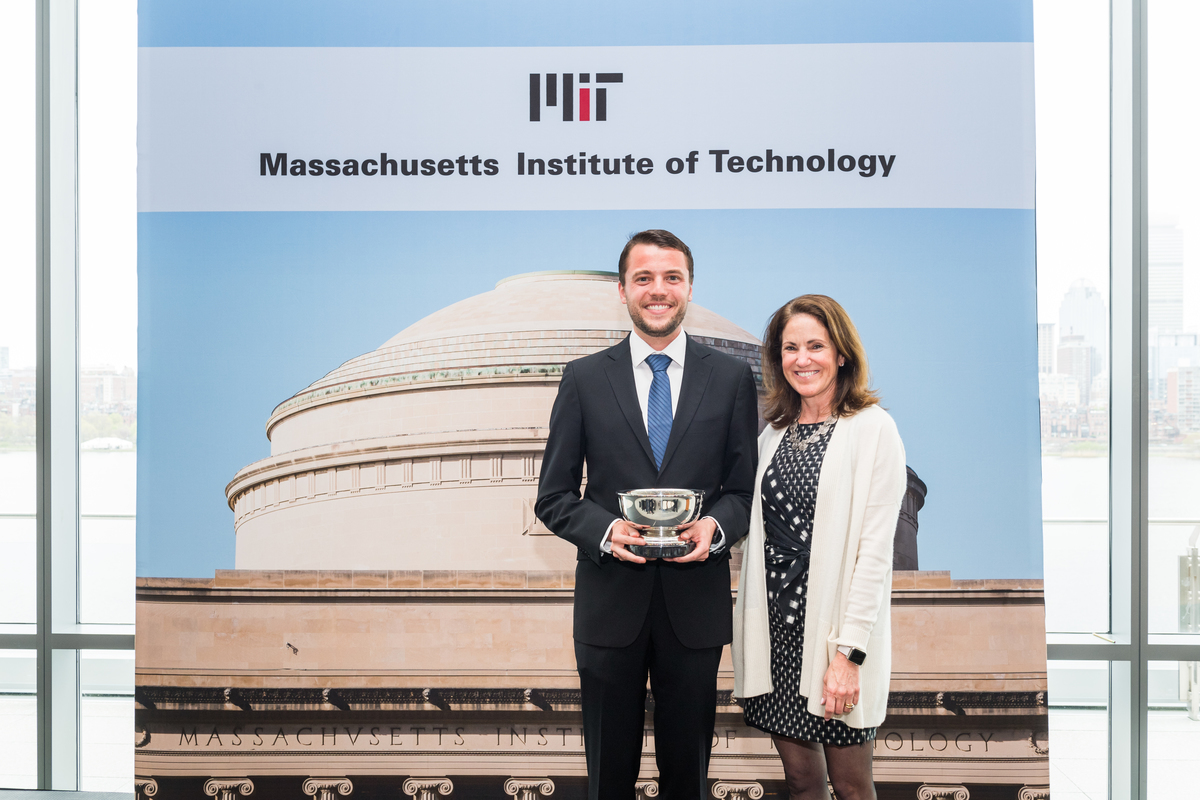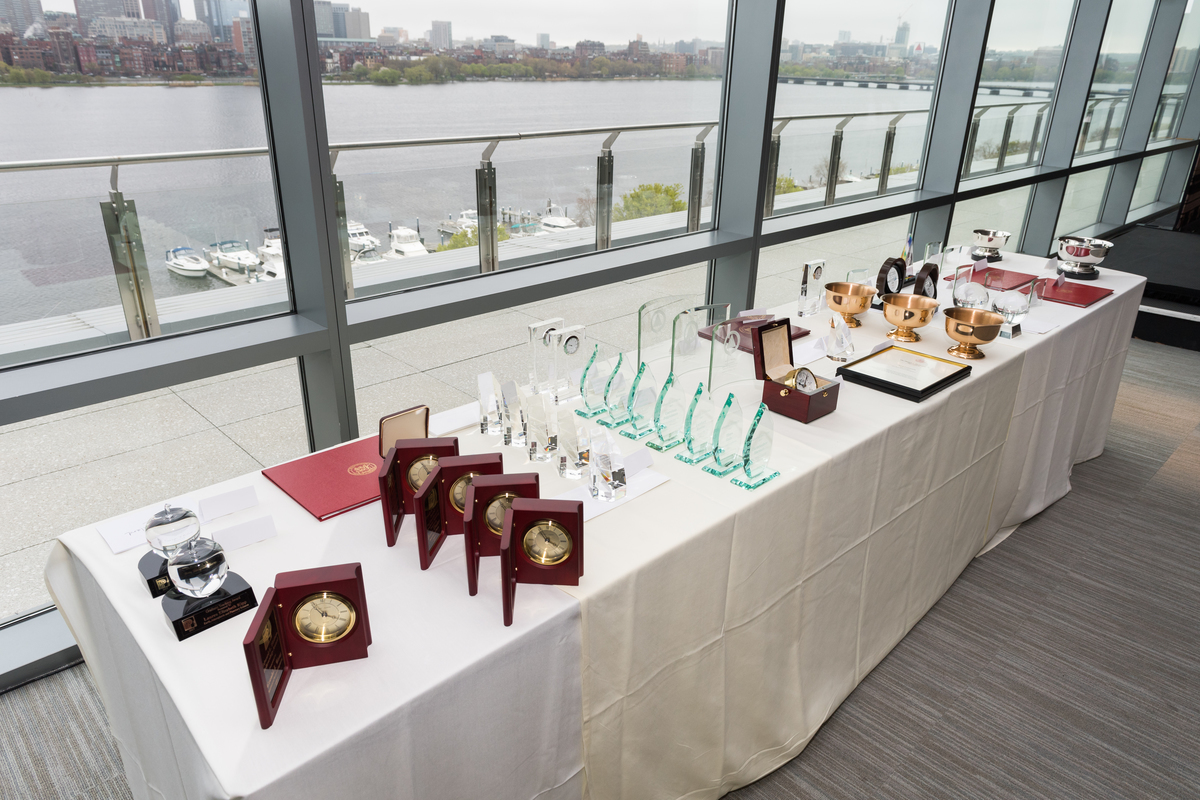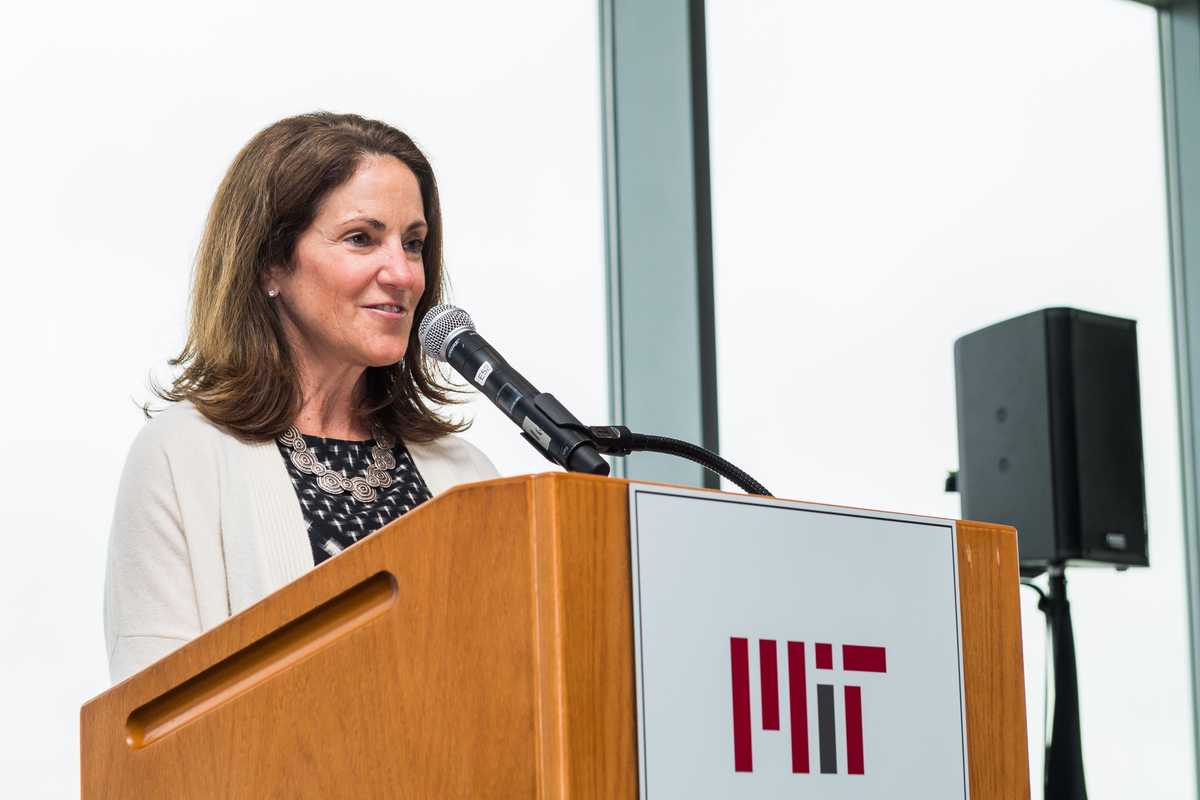PAOC Spotlights
Recognizing a Legacy of Citizenship and Devotion to MIT

Michael McClellan Receives the 2017 Karl Taylor Compton Prize.
For some, the call to serve and give back to their community is strong—a feeling of purpose to improve society emanating within. This rang true for MIT’s Karl Taylor Compton -- a prominent physicist, MIT’s ninth president from 1930-1948 and chairman of the MIT Corporation from 1948 until his death in 1954 – whose influence at MIT is felt to this day and recognized with a prize in his honor.
Under Compton’s leadership, MIT experienced a revolutionary identity change—a redefining of the practice of engineering and science, while the Institute reinforced and strengthened its basic scientific and technological research. As a voice for science, Compton advocated for and helped develop education approaches and standards, which became widely adopted.
Furthermore, Compton’s work extended beyond MIT, as he accepted the role as head of President Roosevelt’s Office of Scientific Research and Development during World War II, which oversaw the development of radar in MIT’s Radiation Lab. For this and helping to shorten the war, Compton received the highest civilian honor of the U.S. Army, the Medal for Merit.
Noted for his uncompromising integrity and his generous public spirit, Compton’s strong leadership transformed the Institute into one of the world’s leading research universities, and each year, MIT presents the Karl Taylor Compton Prize, commemorating his work and lauding a member of the MIT community who exhibits similar values. The prize is the highest award given by the Institute to students and student organizations in recognition of excellent achievements in citizenship and devotion to the welfare of MIT. It’s bestowed at the annual MIT Awards Convocation, which honors students, faculty, staff and community members who have made outstanding contributions to the shared life of the Institute. The 30 awards given at the convocation are named for some of MIT’s most influential figures.

This year, graduate student Michael McClellan from the Program in Atmospheres, Oceans and Climate (PAOC) in MIT’s Department of Earth, Atmospheric and Planetary Sciences (EAPS), was nominated and selected for the prize. McClellan has contributed extensively to MIT, including holding positions as the 2015-2016 MIT Graduate Student Council President (GSC) and MIT Corporation Joint Advisory Committee (CJAC) member, the 2014-2015 GSC Department Representative for EAPS, and the 2016-2017 EAPS Graduate Student Advisory Committee (EGSAC) Vice-President. But it was McClellan’s innovation and initiative that helped transform the way MIT departments now view and address graduate student advising that set him apart from the rest.
As GSC President and CJAC member, McClellan tackled institute-wide affairs, but wanted to improve the mentoring experience at the graduate level. Together with other committee members and faculty, and input from students, McClellan helped develop an anonymous survey evaluation for graduate students targeting and identifying issues that they could be facing. The questions probed graduate mentorship topics ranging from encouraging independent thinking and exploration, value and respect for their advisor relationship, to conflict resolution and work-life balance. The final question allowed students to provide feedback to the department on how their experience could be improved, which many utilized. As interest in the survey ballooned, the pilot project grew and was adopted by several departments across the Institute.
During the awards convocation, Chancellor Cynthia Barnhart highlighted McClellan’s efforts to improve the graduate student experience.
Michael is the past president of the Graduate Student Counsel (GSC) and served on the MIT Corporation Joint Advisory Committee last year. As a committee member, Michael was responsible for working on the thesis course evaluations initiative, and gathered and designed feedback from graduate students about the quality of research advising in their departments. While MIT typically looks at instructors, we had not looked at the student/researcher advisor relationship. With this pioneering initiative, Michael collaborated with faculty, course members, and students, listening to all students and taking their feedback into account. He stayed beyond his appointment to see the project through, collecting input and holding information sessions into the following academic year. To date, thanks to Michael's tireless work, the evaluation has been adopted by more than one dozen departments.
One of his nominators wrote: “It is rare for GSC presidents to pursue projects such as this after it ends, but Michael continued to work to make this idea a reality. Less than two years since he took it on, the program has been rolled out by many departments, and this speaks to his ability to bring people together at all levels of the MIT community to achieve a tangible goal. Furthermore, it is a testament to his diligence and commitment to the student experience, by ensuring that students have an outlet to report issues they have.”
So, for going above and beyond the call of duty, it is my privilege to present Michael McClellan with the Compton award.
While McClellan is pleased that he and his colleagues could help initiate and facilitate constructive conversations between the student body and the departments, he wonders how this process will evolve and thinks that more work needs to be done. “What I think there needs to be more of are some real discussions about expectations and setting the right tone from the beginning, rather than having an opportunity for students to voice their strong opinions [at the end of the semester], which is great,” McClellan says. “We’re seeing where we are now, but how can we prevent those kinds of issues in the future rather than just giving students an opportunity to discuss them out loud [later].” With a passion for this issue, McClellan plans to follow the initiative’s progress like he’s done in the past, providing insights along the way.

When McClellan isn’t effecting change or thinking about issues on the Institute-wide level, he’s contributing to his research group, department teams and groups. His research with EAPS TEPCO Professor of Atmospheric Science and Center for Global Change Science Director Ron Prinn focuses on measuring, identifying, mapping and modeling global emissions of atmospheric nitrous oxide (N2O), which are increasing and linked to human activity. The main sources of nitrous oxide, a greenhouse gas produced by natural and anthropogenic processes in all parts of the world and an ozone-depleting agent, are agricultural and natural soils, industrial processes, biomass burning, and biotic processes in oceans and fresh water features. Using isotope ratios from atmospheric measurements and models, McClellan and his group are working to constrain the emissions in physical space, their place of origin and the sector that released it. McClellan received AGU’s 2015 Fall Meeting Outstanding Student Paper Award, for research that is contributing to his work today.
As a fourth year graduate student, McClellan is looking ahead to build on his work and translate his research into applications with societal gains. “What I’m figuring out right now is how much research and teaching I am interested in and policy, and how to blend all of that because ultimately, the research that I’m doing here, while it’s pretty technical, the application of it definitely has policy implications,” McClellan said. He’s also found other avenues for public service—organizing the EAPS slow-pitch softball intramural team, as well as initiating and maintaining the EAPS air pistol intramural team. And before arriving at MIT, McClellan served as president of the student association at his undergraduate university, Carleton College.
While McClellan already has an extensive track record of citizenship and public service to MIT, he’s only going to ramp it up from here. “I look back to see that trend of really being involved in helping, advocating for students and trying to improve the student experience here, but that ultimately speaks to a desire and need for public service,” McClellan said. “And so I’m trying to figure out what that will look like in the future for me.”
More photos on the MIT Student Life and EAPS Flickr accounts.
Watch McClellan describe his research "Inspiration in a Spray Can".
McClellan is a recipient of the Jule Charney Prize.